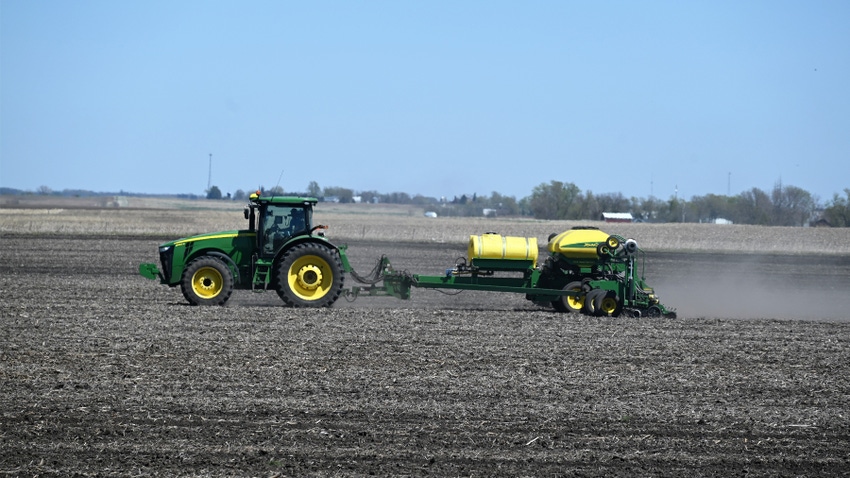June 22, 2023

Sometimes the thing that stops us from engaging in succession planning is not knowing where to start. One of the best first steps in any succession planning is identifying the first steps and making progress on those steps. Transitioning farm machinery and livestock to the next generation is one of the easier and more effective options to transfer farming assets. This is one way that a farmer entering retirement can “see” their heirs assume the active farming role.
What is a fair arrangement?
Transitioning machinery can be handled in several different ways. Options may include an outright sale, an installment or contract sale, gifting or a combination of gifting and selling, or a buyout or gift of older machinery to fund the purchase of new or upgraded machinery. While there are many different approaches, you will want to identify the option that fits best with the elder generation’s cash-flow needs in retirement and the cash available to the farming heirs to pay for it. For instance, if the owners already have other sources of income to fund their retirement, a sale may not be necessary. Leasing equipment may also be an option to consider if transferring ownership is not ideal.
Dealing with taxes
Whatever the option you choose to transition farm machinery, two things are necessary — put your agreement in writing, and discuss your approach with your CPA or accountant before the transition. There are several tax issues to consider in a sale or gift of farm machinery. If you were to sell your equipment outright, the income tax ramifications may be substantial. Because older farm machinery is normally “depreciated out,” there may be a big gain in one year — and you could be taxed at a higher marginal rate than you are used to.
So, spreading out the tax burden over a period of years may be the best option to postpone the tax hit and spread it out over a period of time while continuing to pay taxes at a lower marginal rate. Remember, on an installment sale there may be different tax ramifications for related parties.
From a tax standpoint, the best place to start is to look at your cash-flow needs in retirement and determine what the fair market value of the equipment is. Your tax professional can help you take it from there. If you are gifting machinery over time or at once, you also need to discuss the federal gift tax considerations and impact on your overall exemption amount.
Livestock arrangements
One of the easiest ways to “transition” a livestock herd is to sell on an installment contract or gift the livestock over time. Here is an example of an effective strategy that may work for some operations: Mom and Dad (owners) set up a limited liability company (years ago) to operate their livestock enterprise independent of the rest of the farming operation. The LLC owns the buildings and the hogs. This has been an easy way for the owners to separate the livestock aspect of their business from the crop operation and has helped with record keeping and liability protection.
Now that their son has “come back” to the operation, Mom and Dad are considering retiring in the next five years. They will be available to help for a few years, but don’t want to be actively involved in the livestock operation because of their travel plans. After consulting with their accountant, they have determined a value for the building and the livestock, and they will start selling the business or units of the LLC to their son over a period of five years at 70% of the assets’ fair market value. They have successfully mitigated some of their tax burden and are able to watch the next generation assume management and control of the livestock operation.
Resources are available
Talk with your team, including your accountant, lawyer, financial adviser or other succession adviser on what the right option is for your family. If you need additional information on this topic, Iowa State University Extension has several resources available online, including an article on Farm Transfer Strategies; see bit.ly/farmtransferstrategies for a good explanation of the issues.
Remember not to get overwhelmed by the process. Tackling one issue at a time is a good way to ensure you are continually making progress on your goal of a successful farm transition. I look at succession planning as a work in progress. The most important part is that you and your heirs “check in” with each other frequently to avoid any miscommunication and ensure that the arrangement is working for all involved.
Don’t have a farming heir?
A charitable remainder trust (CRT) is a type of trust that will ultimately provide the charity or charities of your choosing with a significant gift after a period of time or upon the death of the grantors. The first step is to work with your financial adviser, accountant and/or attorney to run the numbers and see if this option makes sense. If it does, the attorney creates the trust. After the trust receives the assets (land, equipment, grain, livestock, etc.), the trust sells them and there is no tax incurred at that point — because the trust is charitable. So, the CRT may reinvest the full value of the sales proceeds.
There are two types of CRTs: a charitable remainder unitrust, or CRUT, where the donor gets paid a percentage of assets in trust; and a charitable remainder unitrust, or CRAT, where the donor’s payments are fixed. Your advisers can help you decide which option is best for you. They avoid social security tax on the self-employment income from the crop sale. You can also change the charities you wish to benefit (just make sure that language is included in the terms of the trust).
Herbold-Swalwell is with Parker & Geadelmann PLLC. Email her at [email protected].
About the Author(s)
You May Also Like






